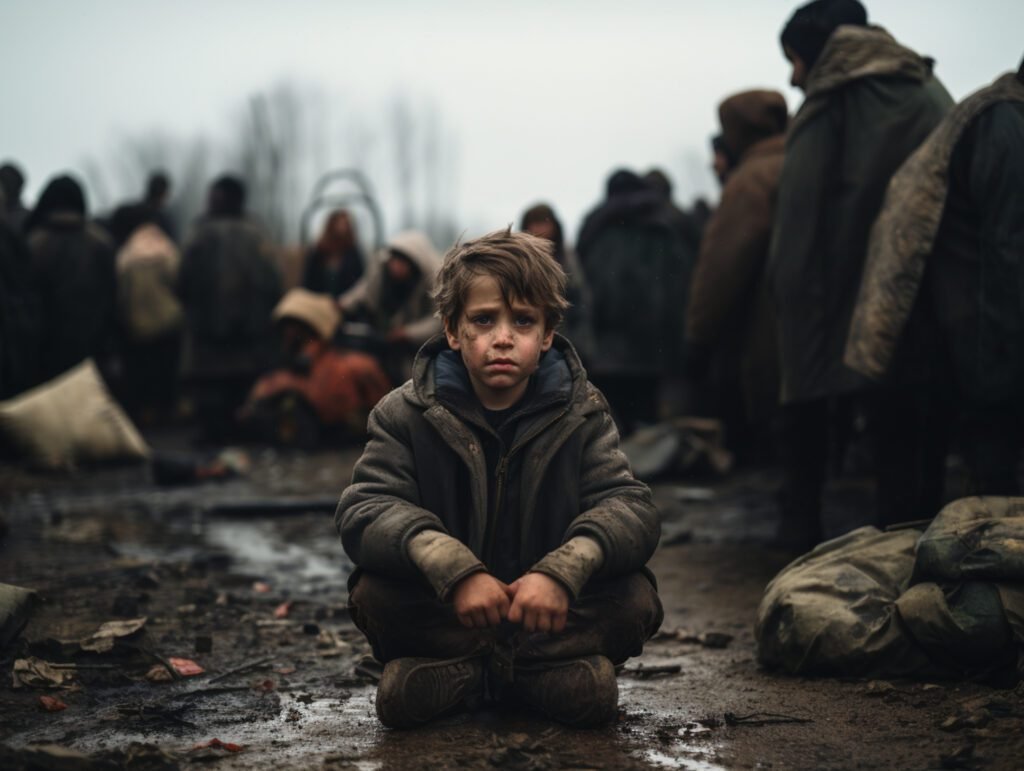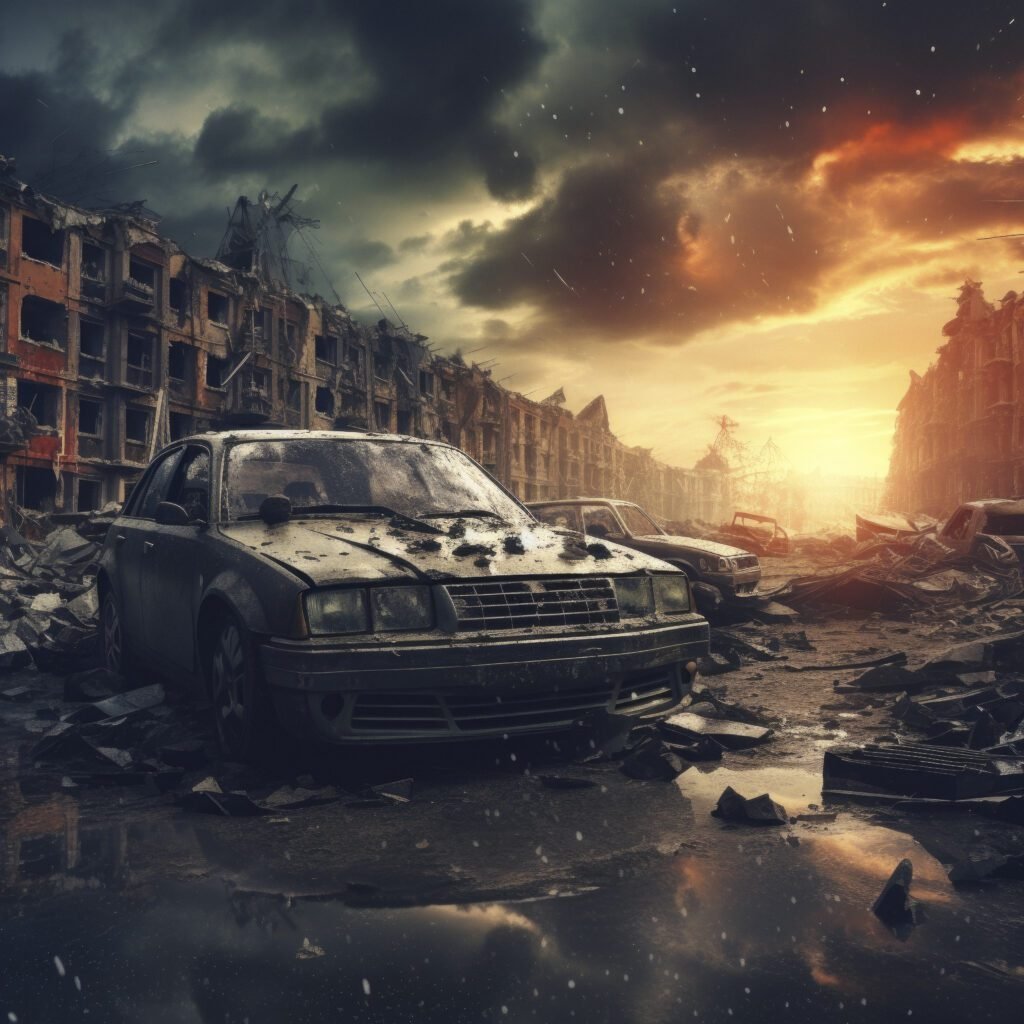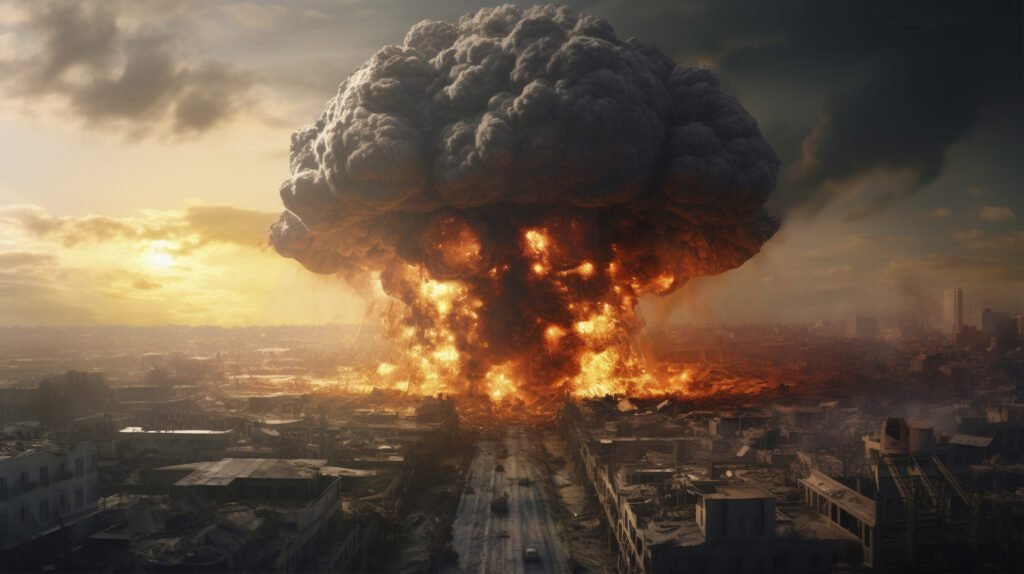Table of Contents
Toggle“The Devastating Impact of War on Human crisis and the Earth”
Introduction:
War, throughout history, has left a trail of destruction, not only in terms of human lives lost but also in its profound impact on the environment. This essay delves into the harmful effects of wars on both human life and the earth, highlighting the interconnectedness of these consequences and the urgent need for peacebuilding efforts.Loss of Human Lives:
The most immediate and devastating consequence of war is the loss of human lives. Whether soldiers on the battlefield or innocent civilians caught in the crossfire, the toll is staggering. Lives are cut short, families are torn apart, and communities are shattered. The psychological trauma inflicted by war extends far beyond the battlefield, leaving scars that may never fully heal. Physical and psychological trauma:
Physical and psychological trauma:
Survivors of war often endure physical injuries that impair their ability to lead normal lives. From amputations to traumatic brain injuries, the physical toll of war is immense. Equally damaging is the psychological trauma, with many experiencing symptoms of post-traumatic stress disorder (PTSD) long after the conflict has ended. The mental health consequences of war ripple through families and communities, perpetuating cycles of suffering for generations.
Displacement and Refugees:
War forces millions of people to flee their homes in search of safety, leading to mass displacement and refugee crisis. These displaced populations face unimaginable hardships, often living in overcrowded camps with limited access to basic necessities such as food, water, and healthcare. The refugee crisis exacerbates existing inequalities and strains resources in host countries, leading to social and economic instability.Destruction of Infrastructure:
The infrastructure crisis of war-torn regions is decimated, with hospitals, schools, roads, and utilities often destroyed or severely damaged. This destruction not only impedes immediate relief efforts but also hampers long-term reconstruction and development. Rebuilding infrastructure is essential for restoring normalcy and improving the quality of life for affected populations. Environmental Damage:
Environmental Damage:
War wreaks havoc on the environment, causing widespread destruction and pollution. Deforestation, soil erosion, and contamination of water sources are common consequences of armed conflict. Ecosystems are disrupted, biodiversity is lost, and natural resources are depleted. The long-term environmental impact of war poses a threat to the health and well-being of future generations.
Humanitarian Crisis:
War creates humanitarian crisis characterized by widespread suffering and deprivation. Access to essential services such as healthcare, clean water, and sanitation becomes severely limited, leading to increased mortality rates, especially among vulnerable populations. Humanitarian organizations struggle to meet the needs of affected communities, exacerbating the crisis.Economic Fallout:
The economic consequences of war are far-reaching, leading to widespread poverty, unemployment, and economic instability. Resources that could have been invested in education, healthcare, and infrastructure are diverted towards military expenditures. The destruction of infrastructure further hampers economic recovery, perpetuating cycles of poverty and inequality. Social Disruption:
Social Disruption:
War undermines social cohesion and exacerbates divisions within societies. Ethnic, religious, and political tensions are heightened, leading to increased polarization and conflict. Trust among communities erodes, hindering reconciliation and peace-building efforts. The social fabric of war-torn societies is frayed, making it difficult to rebuild and move forward.
Health Risks:
War increases the risk of disease outbreaks due to overcrowding, inadequate sanitation, and limited access to healthcare. Diseases such as cholera, malaria, and tuberculosis thrive in conflict-affected areas, posing additional threats to human life. The breakdown of healthcare systems further exacerbates health risks, leaving populations vulnerable to preventable illnesses and injuries. Long-Term Consequences:
Long-Term Consequences:
The effects of war can persist for generations crisis, shaping the socio-economic and political landscape of affected regions. Rebuilding trust, fostering reconciliation, and addressing the root causes of conflict require sustained efforts over the long term. The legacy of war lingers, serving as a reminder of the importance of peace and the devastating consequences of armed conflict.
Conclusion:
War inflicts untold suffering on both human life and the earth, leaving a legacy of destruction that lasts for generations. From loss of life to environmental degradation, the harmful effects of war are profound, far-reaching and crisis. Efforts to prevent and resolve conflicts are essential for safeguarding human well-being and preserving the planet for future generations. Peacebuilding and diplomacy must be prioritized to address the root causes of conflict and create a more peaceful and sustainable world. Is human life so cheap, a corrupt politician and a dictator general push the entire state into war for their own benefit?
Shame on these corrupt politician and dictators. Who do not care about humanity and do not care about their lives.
Is human life so cheap, a corrupt politician and a dictator general push the entire state into war for their own benefit?
Shame on these corrupt politician and dictators. Who do not care about humanity and do not care about their lives. 
It’s beneficial for me
Pingback: Palestinian: Unlocking the Israel-Palestine Conflict. sad 00
Great
Pingback: Pollution: Understanding Causes and Solutions, rising pollu0
Pingback: Plant trees and save life: "lungs of the earth," Martia zon0